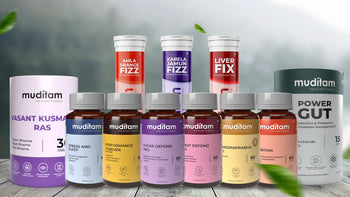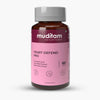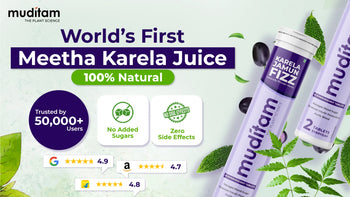10 alternatives to tea and coffee you should try
Last updated on:
Tea and coffee have become daily companions for many. Whether it's a morning ritual or a mid-day energy boost, these caffeinated drinks often feel necessary to function. But too much caffeine can lead to restlessness, sleep troubles, acidity, and even anxiety.
If you’re looking to reduce your caffeine intake or simply explore healthier, calming options, here are 10 caffeine-free alternatives to tea and coffee that not only taste great but also support your overall well-being.
1. Herbal Teas (Tulsi, Chamomile, Peppermint)
Herbal teas are a soothing replacement for traditional tea. They are naturally caffeine-free and offer therapeutic benefits.
- Tulsi (Holy Basil): Supports immunity and reduces stress.
- Chamomile: Promotes relaxation and better sleep.
- Peppermint: Aids digestion and refreshes the senses.
2. Golden Milk (Haldi Doodh)
A warm drink made with turmeric, black pepper, and milk (dairy or plant-based), golden milk is anti-inflammatory and perfect for winding down in the evening.
3. Coconut Water
Naturally hydrating, coconut water replenishes electrolytes and provides gentle energy without stimulating the nervous system.
4. Warm Lemon Water
A simple glass of lemon water in the morning can kickstart digestion and metabolism without caffeine. It’s also rich in vitamin C.
5. Barley Coffee (Daliya Coffee)
This roasted grain drink is caffeine-free but has a rich, coffee-like taste. It’s especially good for people looking to enjoy the aroma and depth of coffee without the side effects.
6. Fruit-Infused Water
Infuse plain water with slices of orange, lemon, cucumber, or mint to make hydration more enjoyable. It’s a great alternative to reaching for a second cup of tea or coffee.
7. Vegetable Juices (Beetroot, Ash Gourd)
Vegetable juices are nutrient-dense and help cleanse the system without overloading the body with sugar or caffeine. Beetroot, in particular, can improve stamina and blood flow.
8. Buttermilk (Chaas)
A traditional digestive drink, buttermilk cools the body and promotes gut health. It's especially useful in warm weather or post-meal.
9. Green Smoothies
Blending leafy greens with fruits, seeds, and nut milk creates a drink that is both energizing and nourishing. Green smoothies support metabolism and focus without the crash that comes from caffeine.
Why Consider Cutting Down on Caffeine?
Caffeine in moderation is fine for most people, but high intake can lead to:
- Disrupted sleep
- Increased anxiety and jitteriness
- Digestive issues (like acidity and bloating)
- Dependency and energy crashes
By exploring natural, caffeine-free alternatives, you can support your body’s rhythm more gently and avoid long-term side effects.
Tips to Make the Switch Easier
- Start with one cup: Replace just one cup of tea or coffee a day with an alternative.
- Stay consistent: Drink your new beverage at the same time you usually crave caffeine.
- Keep it enjoyable: Choose flavors you genuinely like so it doesn’t feel like a compromise.
- Add calming rituals: Especially at night, pair your herbal drink with a wind-down activity like reading, journaling, or deep breathing.
Conclusion
Cutting down on tea or coffee doesn’t mean sacrificing comfort or energy. With so many nourishing, caffeine-free options available, you can enjoy the ritual of a warm or refreshing drink while supporting your body’s natural balance.
In the end, it's about listening to your body — and choosing habits that restore rather than drain.













